Speaking a new language can often be a huge challenge. There are so many things that you like to say and chances are high that somehow words are always missing. One thing seems to be a perfect solution: Google Translate. It is fast, you can ask it the weirdest things and it is free. The only question is: is it always a good idea to rely on Google Translate? Let’s play with some typical sentences from real life and find out 🙂
First of all, before we start playing with Google Translations, I would like to state one thing. I am deeply impressed by the great work of Google Translations. They have done an amazing job, this is absolutely the first thing that I must say. It is one of the greatest tools that has ever been developed. The only question for now is: should you rely on it? This is why we will play in a fun way with some typical sentences that you could translate from Dutch into English and then you can decide for yourself 🙂
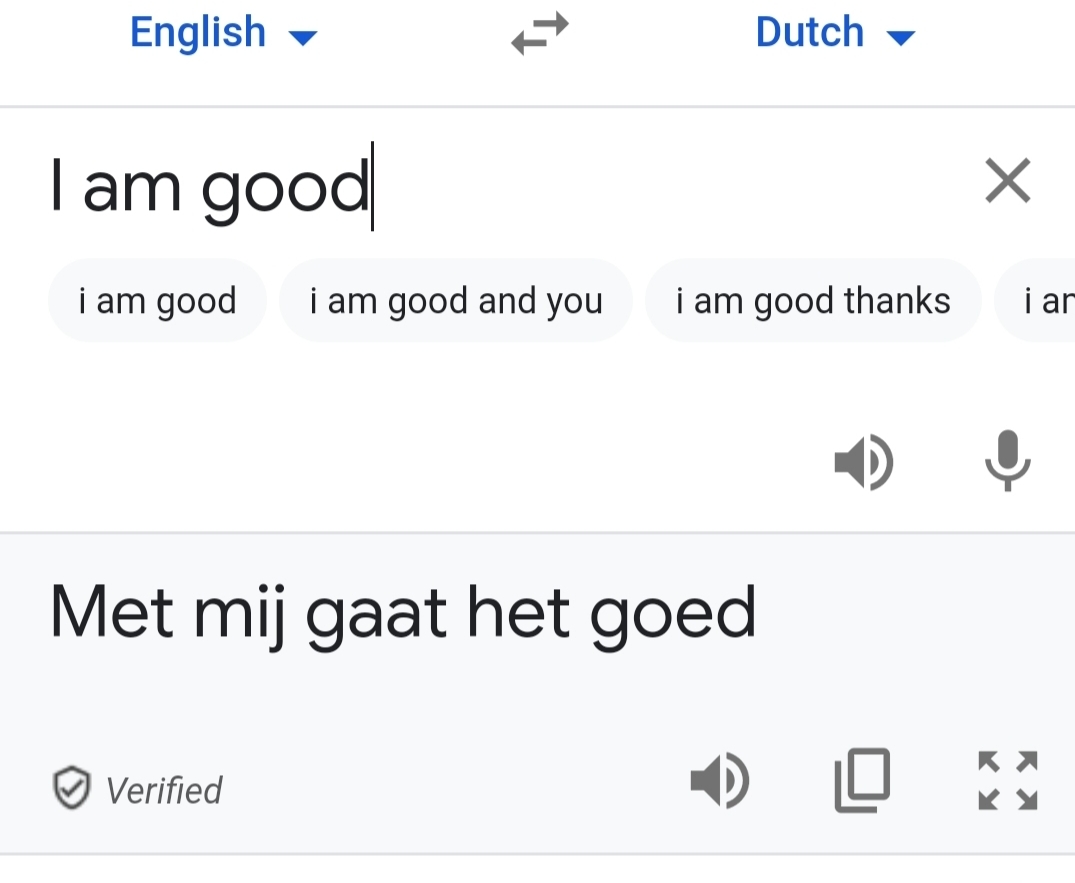
I am good is something that you often say in English, but what does it really mean? Google translated this with: met mij gaat het goed and often it would make perfect sense. I have to admit that it is a smart translation. But… in Dutch many things depend on contect, so it really depends on what you like to say. If you like to say that everything is fine with you, then it makes perfect sense.
But: another more literal translation could also make perfect sense: ik ben goed. Here it means that you are a good human being and that you have a kind heart. Or it could mean that you are very talented and that you produce great results. You could say: ik ben goed in wat ik doe (I am good at what I do). It could be the perfect sentence to say in a job interview 🙂
Here is another situation…. Imagine that you go to a Dutch party and that someone asks if you need anything, like a beer or wine. If you don’t need anything then it would make perfect sense to say I am good, right? If you say: met mij gaat het goed then chances are high that the Dutch person will start to stare at you in a very strange way. For some reason, it would not make any sense at all. Why would you say that in your life everything is ok? Therefore, in this very specific situation, it would make more sense if you say: nee dank je, ik hoef niks (no thank you, I don’t need anything)
Can you see that everything really depends on context here? Let’s play with some more examples…
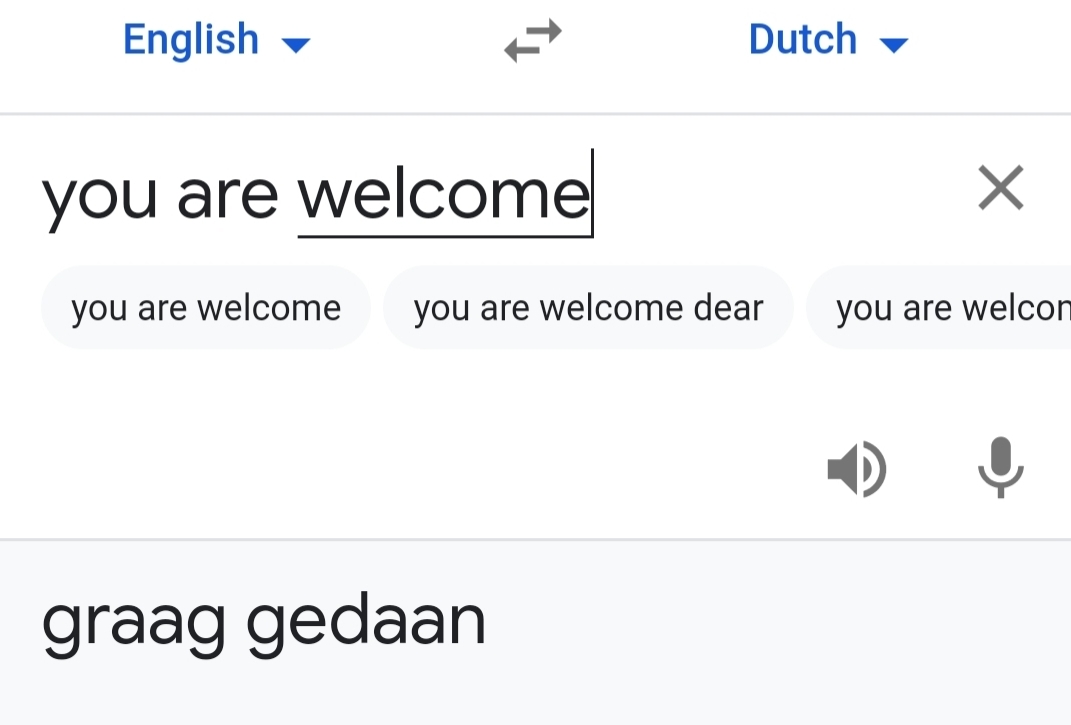
You are welcome can mean two things in English. You are welcome to a certain place, or: it is my pleasure to do something for you. It is important that you know what you like to say!
Here you can see that Google assumed that you like to say something like: my pleasure, you are welcome. Graag gedaan means with pleasure done. You can say it when someone thanks you after that you did something for them. It is a logical guess that Google made, don’t you think?
But, just for the fun of it, let’s assume that you own a restaurant and that you like to say: you are welcome in my restaurant. Here you really need to say: je bent welkom in mijn restaurant! Graag gedaan in mijn restaurant really wouldn’t make any sense at all! It could leave a Dutch person puzzled for quite a long time 😉
Here is another important thing. Be careful when you say: je bent welkom, certainly if what you mean is: my pleasure. As you could already discover, je bent welkom means that people are happy to see you in a certain place. Therefore if you say: je bent welkom it could raise certain doubts. What do you mean that I am welcome here? Although it is a very subtle mistake, you never know… It could make some people angry…. They could see it as a suggestion that they might not be welcome at all, or at least that you question it…. Yes I know… Iife can be complex and difficult sometimes, certainly if you like to communicate!
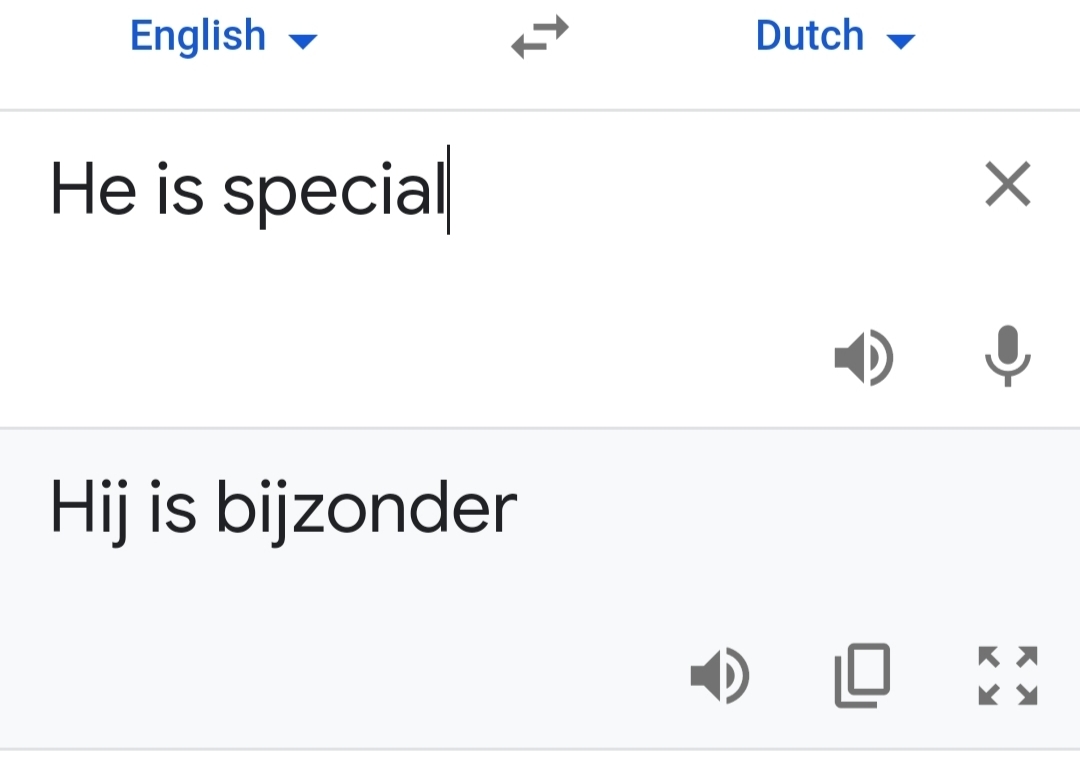
Special is a very tricky word in English, I only discovered it some years ago. As a Dutch person I would automatically assume that it is something positive, but in English you never know. Special can be a word that can disguise many things. Sometimes the meaning is actually quite bad, so every time that I hear this word in English, I am a bit more suspicious now…
In Dutch bijzonder tends to be mainly positive. The same thing is true for speciaal, which probably is easier for you to remember… Hij is speciaal is therefore a very positive statement. Remember by the way that hij in Dutch can also refer to things… if you talk about wijn, then hij is speciaal would mean that the wine is somehow really unique. And yes, if you say: de wijn is bijzonder, then it is special in a very positive way!
By the way in Dutch there is a very simple word that you can use if you find something a bit weird and that is apart. If you say: de wijn is apart, then it means that it is a peculair wine. Although it could be positive at the end, when you hear the word apart in Dutch it often means: wow! This is new, I have to get used to it.
If you hear apart when Dutch people talk about other people, then you need to be careful. Certainly if you hear the sentence: hij is een beetje (a bit) apart. It could be positive, but it often means: he is weird or crazy!
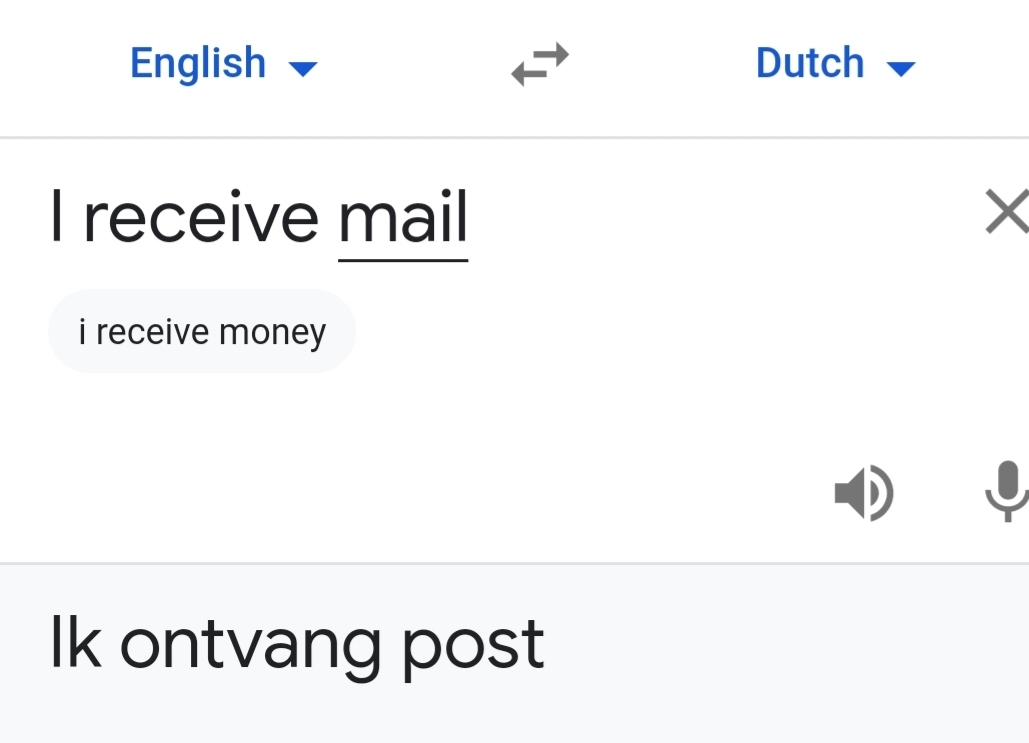
Here is another subtle one. Ik ontvang post is indeed a perfect translation for I receive mail. But… there is one little thing that you need to be aware of. In Dutch you can translate mail with two words. Mail for email and post for all physical things and packages that you receive. Therefore if you ask: ontvang je mijn post (do you receive my mail), Dutch people would only think of things that literally fall on the door mat. Once again, mail in Dutch is only email and nothing else and post is for all the rest!
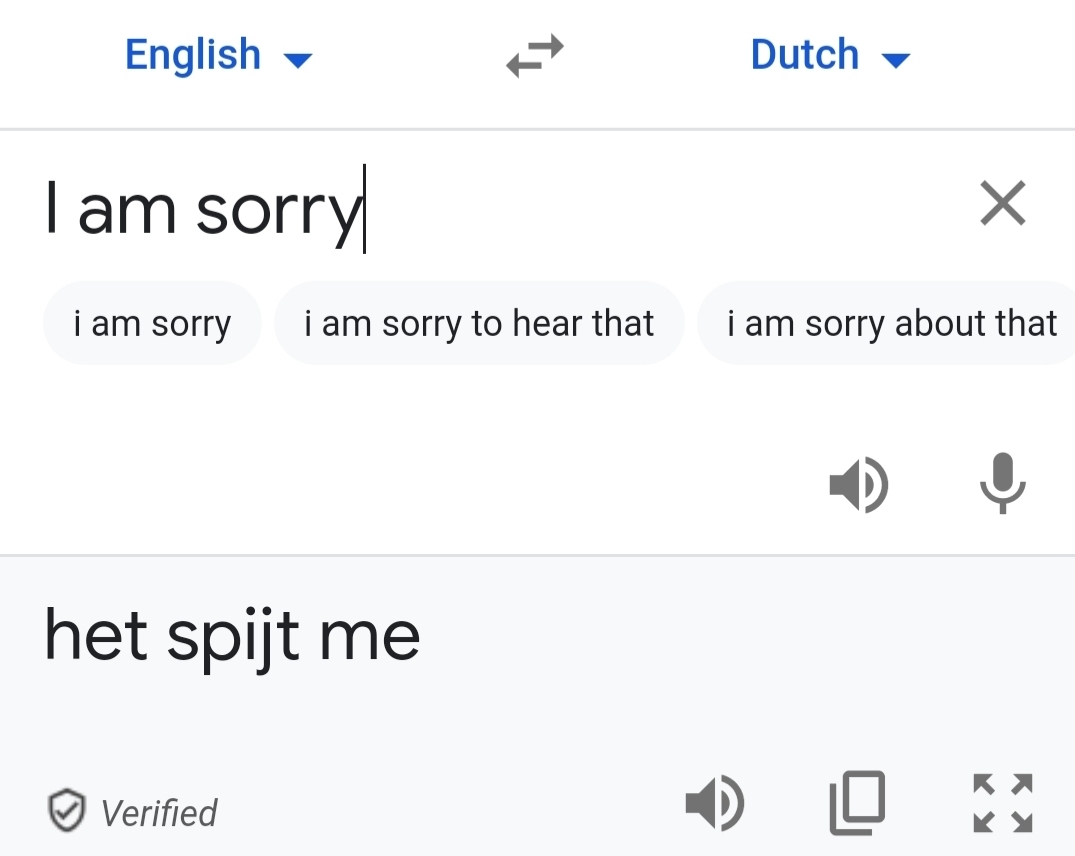
You must have noticed that certainly in comparison with Brits, Dutch people do not apologize a lot. In English you say I am sorry all the time and to be honest, I do not always know what it really means… Sometimes it seems to me that it means: F*** you! Get out of my way!, but maybe it is just my cynical interpretation sometimes 🙂
In Dutch you do hear sorry in every day conversation and that already means a lot. It most cases sorry or pardon is the perfect words to use, certainly if you like to pass people somewhere in the street or if you like to disturb them for a short moment with a question.
If you say: het spijt me in Dutch, then it means that you are really really sorry and that you regret something. It means that you did something really bad. You can say it when you were in your care and you did not see the cat of your neighbors or when you had an affair with the brother or sister of your partner. When you say het spijt me, then it most cases you are looking for forgiveness.
That is why you should not say het spijt me all the time. Because if you do, you give the suggestion that all the time you are doing things that are totally unacceptable!
Conclusion and last tips
Can you see now that translation is not as easy as it seems? First you need to put to code of one language into the code of another language, which can already be a huge challenge by itself and then on top of it, there are some many other things that you need to consider! The good thing however is that the more you know about Dutch, the easier it is to know intuitively when you should trust Google Translate or not.
I always love to say that Google Translate is like a TomTom. It is a great navigation system and it can make your journey a lot smoother. But… there is always one thing that is very important and that is that although TomTom and Google Translation can give a great sense of direction, you must always think of yourself. Never do things, only because Google Translate and TomTom told you to do so! Always use your judgment and then once you know to use these technical devices, it can make your life a lot easier!



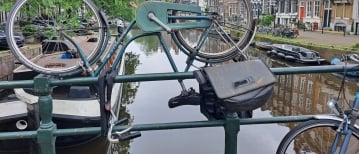

Nash
on 28 May 2021Albert Both
on 03 Jun 2021